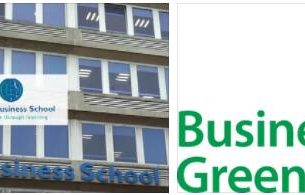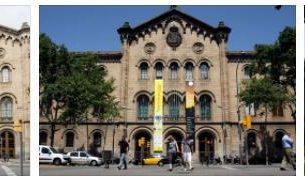Shopping
Overview
The Netherlands is a great place to shop. Many cities have attractive pedestrian zones with cozy cafés and small boutiques, and internationally renowned fashion brands are also widespread. In the big cities, modern shopping centers are also increasingly found, which are often located in commercial areas on the outskirts. Popular souvenirs include clogs (wooden shoes), cheese, costume dolls and silver items from Schoonhoven, glass and crystal from Leerdam and diamonds from Amsterdam. When buying Delftware you should insist on a certificate of authenticity as the name is not protected. The markets that take place regularly in all larger towns, mostly on Saturdays, offer a special shopping experience. Especially in the border region, the markets attract numerous visitors from abroad. In addition to fresh fruit and vegetables of excellent quality and artisanal cheeses, you can also buy fish, flowers and plants here. With the Markthal (Internet: www.markthalrotterdam.nl), Rotterdam has a huge covered market place that is open daily until 8 p.m. Themed markets also take place time and again, such as flower, fish, cheese or fabric markets. The well-known flower markets in Amsterdam, Delft and Utrecht as well as the flower auctions in Aalsmeer, The Hague and Rotterdam are particularly worth a visit. The traditional cheese market in Alkmaar takes place from mid-April to mid-September on Fridays from 10am to 12pm. At the fabric market in Venlo you will find a large selection of beautiful and high-quality fabrics at reasonable prices. The Netherlands is also known for its many good antique shops and the numerous flea markets where you can always find one or the other piece of jewelry.
- Top-engineering-schools: Provides detailed population data for major cities of Netherlands. Also covers geography information including rivers, mountains, lakes, and national borders.
Opening hours
Mon-Fri 08.30/09.00-17.30/18.00, Sat 08.30/09.00-17.00. In Amsterdam, Rotterdam and other larger cities, supermarkets are open Mon-Sat 08.00-20.00/22.00. In the city centers some shops also open on Sundays from 12.00-17.00, but are closed on Monday mornings.
Nightlife
Introduction
In the big cities you can find excellent nightclubs and discotheques. The bars and cafés of the provincial towns are just as popular with night owls. There is always something going on, especially in student cities such as Utrecht, Tilburg or Groningen, but Eindhoven is also known for its lively nightlife. In all larger cities there are cinemas, theaters and playhouses where a varied stage program is offered. A well-known example is the Grand Theater in the city center of Groningen, which often hosts daring theater productions and performances. In the Stadsschouwburg in Amsterdam, which only reopened in 2008 after extensive modernization, English-language plays are also performed, while the famous World Christmas Circus with its breathtaking program can be seen every year in the Royal Theater Carré on the Amstel. A special feature are the coffee shops that can be found in many cities: Even if smoking tobacco in public is prohibited in the Netherlands, pure marijuana can still be smoked in the coffee shops. A visit to Amsterdam is a must for all night owls: the city is a metropolis with a lively nightlife and some of the best jazz clubs in Europe. There are numerous bars, pubs, discos and nightclubs, most of which are located around the Leidse and Rembrandtplein. But Rotterdam also has a spectacular nightlife to offer. In the Oude Haven, students cavort in the numerous pubs, but there are also many restaurants around the Veerhaven. There are several nightclubs at the Stadhuisplein.
Accommodation
Hotels
The offer ranges from luxury hotels in the big cities to youth hostels and modern motels on the motorways. The Netherlands Booking Center (NRC) can make reservations across the country. The Dutch Tourist Office publishes a hotel guide (with hotel and motel classification), a directory of group accommodation, a list of bungalows and an information brochure for campers. Hotel Classification: Hotels are classified into the Hotelstars Union star categories from one to five stars.
Camping
There are around 2500 registered campsites. Advance booking is recommended if possible (only for around 500 seats). Camping (including in caravans) is prohibited outside of the designated areas. The prices for pitches are high, after the first night they charge less. The Tourist Office publishes a list of all campsites. There are also hiker’s huts for up to four people on some pitches.
Other accommodation options
There are over 50 youth hostels (no age limit). Information from the Youth Hostel Association, Stiching Nederlandse Jeugdherberg Centrale (NJHC), Postbus 5030, NL-2900 EA Capelle aan der Ijessel (tel: (010) 264 60 64. Internet: www.stayokay.com).
Culture
Religion
31% Roman Catholic; 21% Protestant (especially Dutch Reformed Church); Muslim and Jewish minorities.
Social Rules of Conduct
General: A lot of consideration is given to seniors and people with disabilities. Children are welcome in most shops and restaurants. Approach: The usual forms of politeness should be observed, you should always be polite and relaxed. Dutch people are generally more direct and don’t make much small talk. You are often addressed directly by your first name. If in doubt, you should use the first name and surname when you first meet the person in question. They shake hands to greet each other, three kisses alternately on the cheeks are more personal. If you are invited to dinner, the hosts are happy about a small gift such as a bouquet of flowers, a bottle of wine or a box of chocolates. Gifts are usually unwrapped immediately. Many Dutch people worship the royal family, so one should refrain from making critical remarks. Discussions about the Second World War or the geographical extent of the country should also be left to one side. Dress code: Casual attire is acceptable everywhere, except for special occasions and business meetings where suits or suits are expected. Some posh restaurants, clubs and bars require evening wear. Photographing: People should be asked before photographing them. This applies in particular to the ladies in the red-light district, who are very reluctant to be photographed and will also tell a photographer this unequivocally. Smoking: Smoking is prohibited on public transport and in pubs and restaurants. Smoking is only permitted at outdoor tables and in separate smoking rooms in the catering establishments. Tobacco may no longer be added to marijuana in coffee shops. Only small pubs that are marked as Rookcafé and have a maximum area of 70 m2 are exempt from the smoking ban. Tipping of 10% is customary, although restaurant and hotel bills include the service charge. Tobacco may no longer be added to marijuana in coffee shops. Only small pubs that are marked as Rookcafé and have a maximum area of 70 m2 are exempt from the smoking ban. Tipping of 10% is customary, although restaurant and hotel bills include the service charge. Tobacco may no longer be added to marijuana in coffee shops. Only small pubs that are marked as Rookcafé and have a maximum area of 70 m2 are exempt from the smoking ban. Tipping of 10% is customary, although restaurant and hotel bills include the service charge.
Climate
Best travel time
Pleasant, mild maritime climate with mostly warm but changeable summers. Rain all year round, sometimes cold in winter, snowfall is possible. The best travel time starts in May and ends in September.
Country data
Phone prefix
+31
Area (sq km)
41543
Population
17,120,370 (Source: homosociety)
Population density (per square km)
488
Population statistics year
2020
Member of the EU
yes
Main emergency number
112



